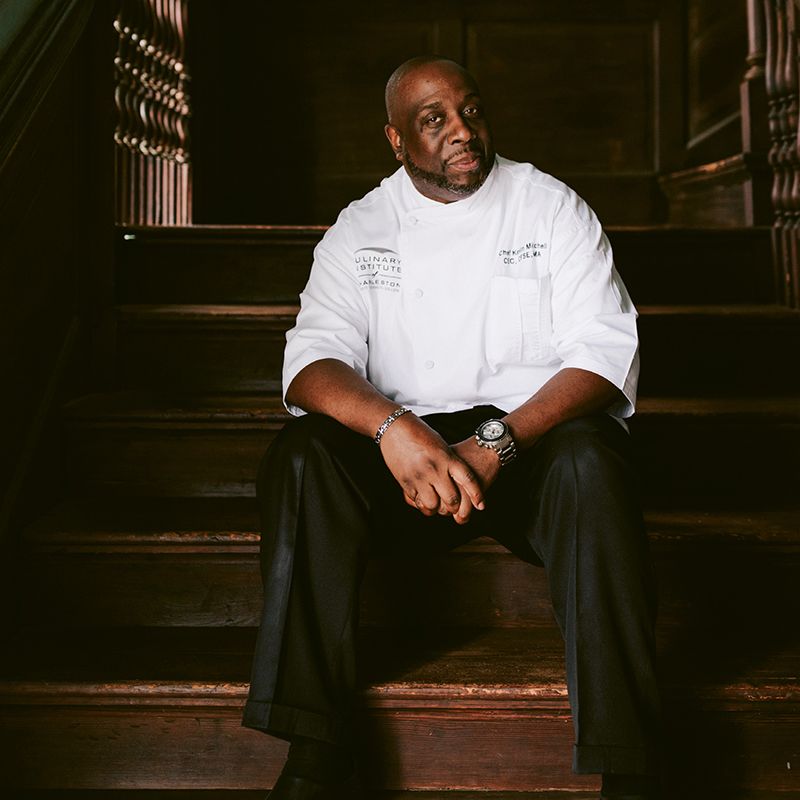For Kevin Mitchell, there’s so much to learn—and teach—about black cooks’ contributions to Southern foodways

Kevin Mitchell at Drayton Hall, where he will prepare a meal on April 27 based on his research of the 18th- and 19th-century “Drayton Diaries”; find details at draytonhall.org.
In 2015, when Culinary Institute of Charleston chef instructor Kevin Mitchell was asked to play the role of Nat Fuller, an emancipated 19th-century Charleston caterer, for Nat Fuller’s Feast, he had no idea it would change his life. But after researching Fuller, his curiosity was piqued, and his quest to uncover other hidden histories of black chefs could not be quelled. Mitchell enrolled in the University of Mississippi’s Southern Studies program and last May finished his thesis, “From Black Hands to White Mouths: Charleston’s freed and enslaved cooks and their influence on the food of the South.” Now he’s back in town with renewed purpose and a host of spring events.
CM: Why did you decide to get your master’s degree?
KM: I had always been interested in history, especially in an industry where not too many African Americans are in the spotlight. I wanted to find different stories about those who made contributions.
CM: You uncovered more than 100 ads for enslaved cooks. How do you see your research impacting the way we think about food?
KM: I think people will realize that African Americans were at the helm of not only the “big house kitchen” but some of the greatest kitchens in America. They won’t have to ask, “Where were all the black chefs?” and can address other issues, such as why there are few African Americans leading great kitchens today, or if they’re there, why they are not getting the press they deserve.
CM: Give us an example of how you’re now bringing black chefs’ stories and their food together through events?
KM: In December, I hosted “Journey of a Southern Chef” with Transformation Table, community activist Tina Singleton’s pop-up dinner series. I dedicated each course to a chef who inspired me. I made dishes by Joe Randall, who owned Chef Joe Randall‘s Cooking School in Savannah; Atlanta’s Darryl Evans, the first black chef in the Culinary Olympics; and Patrick Clark, an innovator in French cuisine; plus a special one for my grandmother Doris.
CM: What do you have lined up for this spring?
KM: On April 27, I’m hosting a dinner with Drayton Hall, and on May 16, I’ll be part of the Drayton Hall Distinguished Speaker Series. Also, on May 11, I’ll be speaking about my thesis at the John’s Island Library for an event in partnership with the Gullah Geechee Cultural Heritage Corridor Commission.
Born: Willingboro, New Jersey
Lives: In North Charleston
Culinary backstory: At age six, he began learning to cook at the feet of his grandmother Doris in New Jersey. He studied at The Culinary Institute of America and cooked in Detroit and Atlanta before moving to Charleston.
Find him: On Instagram, @chefscholar